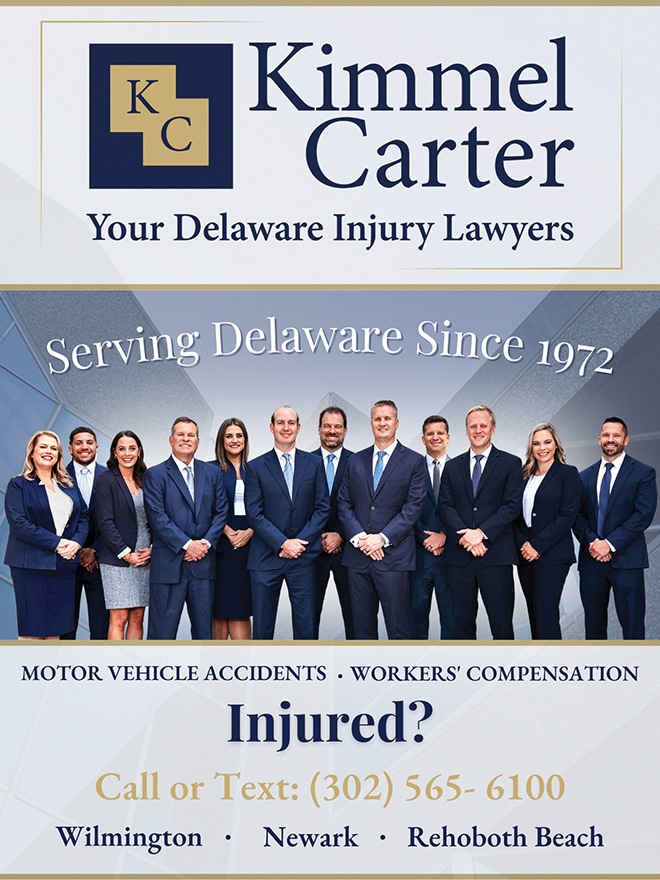Accurate Medical Records Strengthen Cases

By Linda Malkin, Esq.
Worker’s compensation is designed to provide benefits to employees who suffer job-related injuries or illnesses. Medical evidence is the cornerstone for establishing the legitimacy of a worker’s compensation claim and securing appropriate compensation. Medical records validate the nature and extent of injuries and outline a claimant’s ability to work. Understanding the importance of medical evidence can significantly influence the outcome of your workers’ compensation claim.
Establishing the work injury
One of the primary functions of medical evidence in workers’ compensation cases is to establish a direct link between the claimant’s injury and their work. To qualify for worker’s compensation benefits in Delaware, you must demonstrate that your injury or illness is work-related. Records showing that the injury occurred during workhours, in the course of employment, or as a results of specific job-related activities can support your claim.
Supporting the claim for medical and disability benefits
In Delaware, workers’ compensation benefits include coverage for medical expenses related to the work injury. Accurate and comprehensive medical records are essential for substantiating these expenses. They provide detailed information about the treatments received, medications prescribed, and any ongoing care required. Medical records should address the continuity of treatment, changes in physical condition, and the expected duration of the injured worker’s recovery. This information is crucial for ensuring that you receive appropriate benefits. Insurance companies and the Delaware Industrial Accident Board rely on these records to verify that the medical expenses claimed are necessary and related to the workplace injury.
Medical evidence also establishes the severity of a claimant’s injuries and the impact on their capacity to work. A claimant cannot obtain disability benefits without supportive medical documentation. Accurate medical records will help establish whether the claimant is temporarily or permanently disabled and the expected duration of disability.
Working with medical professionals
The best way to ensure medical records are reflective of your injuries is to promptly communicate any changes in your condition to your doctor. An injured worker should actively work with their treating physician, specialists and other healthcare providers to ensure that all relevant information is accurately recorded. If an workers’ compensation insurance carrier denies a claim or the extent of the work injury, comprehensive medical documentation can support your case against the denial or underpayment of benefits.
It is advantageous to choose a medical professional that has experience with occupational injuries and workers’ compensation cases. This will ensure your provider is cognizant of workers’ compensation claim requirements, thus providing you with appropriate documents and testimony, if necessary.
Effective documentation, clear communication, and adherence to legal and ethical standards are essential for navigating the workers’ compensation process successfully. By understanding the role of medical evidence and working closely with their healthcare professionals, claimants can strengthen their cases and improve their chances of receiving the benefits to which they are entitled.
Navigating the workers’ compensation process can be complex and daunting, especially when dealing with the aftermath of a workplace injury or illness. At Kimmel Carter, our sole commitment is to help victims of work accidents and personal injuries. If you have questions, I can be reached at 302-565-6142 or [email protected]
Bio
Linda Malkin has been an attorney for 10 years, she has been at for Kimmel, Carter, Roman, Peltz & O’Neill since 2010. Linda concentrates her practice on motor vehicle accidents, wrongful death, products liability, nursing home neglect, dog bites, and work-related accidents.
Linda is a proud graduate of Saint Mark’s High School and Penn State University. Upon her graduation from Penn State, Linda began her career in law working full-time at Kimmel Carter while attending Widener University Delaware Law School at night.
She served as a Deputy Attorney General in the Family Law department for the Delaware Department of Justice. During her tenure with the Attorney General’s office, Linda gained valuable courtroom experience while managing a heavy caseload.
Upon her return to Kimmel Carter, she combined her extensive knowledge of personal injury cases and litigation experience to thoughtfully and successfully representing individuals and families who have been impacted by an injury. She advocates for her clients to ensure they are rightfully compensated and receive all of their entitled benefits.
Linda is married and has two children. Outside the office, she enjoys coaching and attending her children’s sporting events. In her spare time, she can be found exercising her unofficial “Maxxinista” skills or training for her first triathlon.
Testimonials
“I have nothing but good to say in regards to my experience with Linda Malkin. She was thorough, fair, friendly, and professional. Linda was quick to respond to my emails and calls. Everything she explained to me happened just as she told me. I’d highly recommend Linda and the firm to anyone who finds the need for an attorney. I’d like to thank Linda for making a difficult situation for me painless and quick.” ~ Tony
“Linda Malkin went above and beyond. She kept me updated and always informed me on the process and where we stood. I would recommend Kimmel Carter’s services!” ~ Desmond
Kimmel Carter
Your Delaware Injury Lawyers
Call or Text (302) 565-6100
follow @kimmelcarterlaw on instagram & @kimmelcarter on facebook
Offices in Wilmington, Newark and Reboboth Beach


